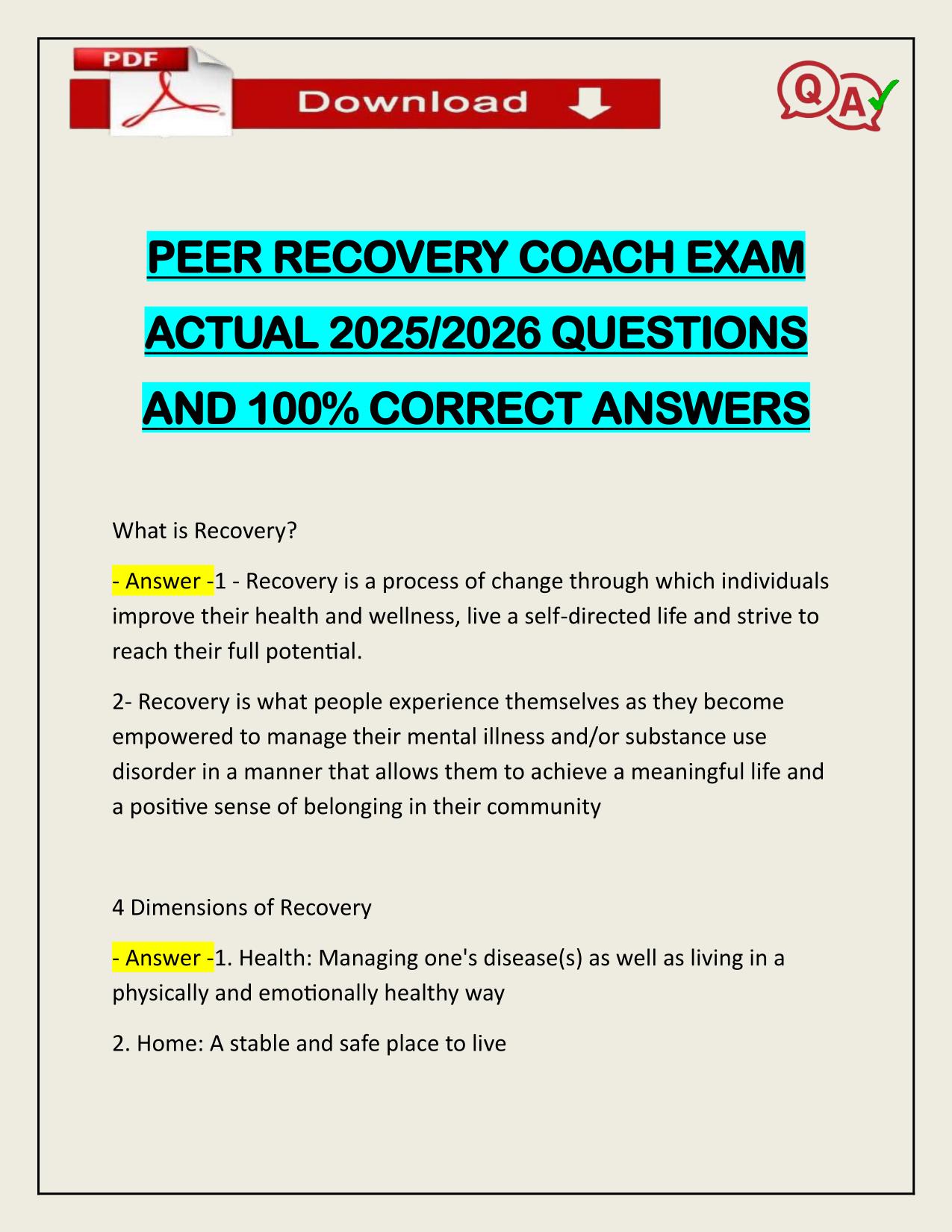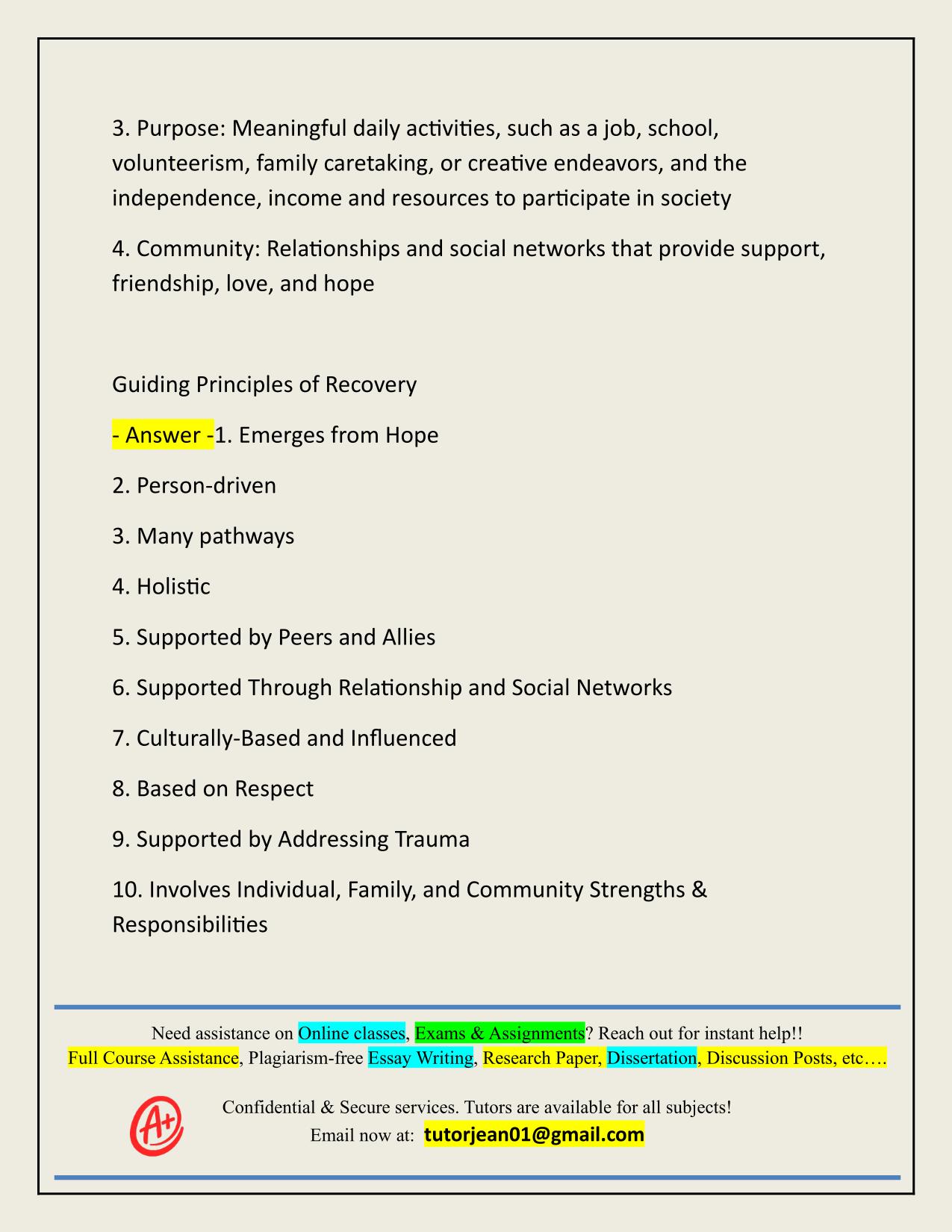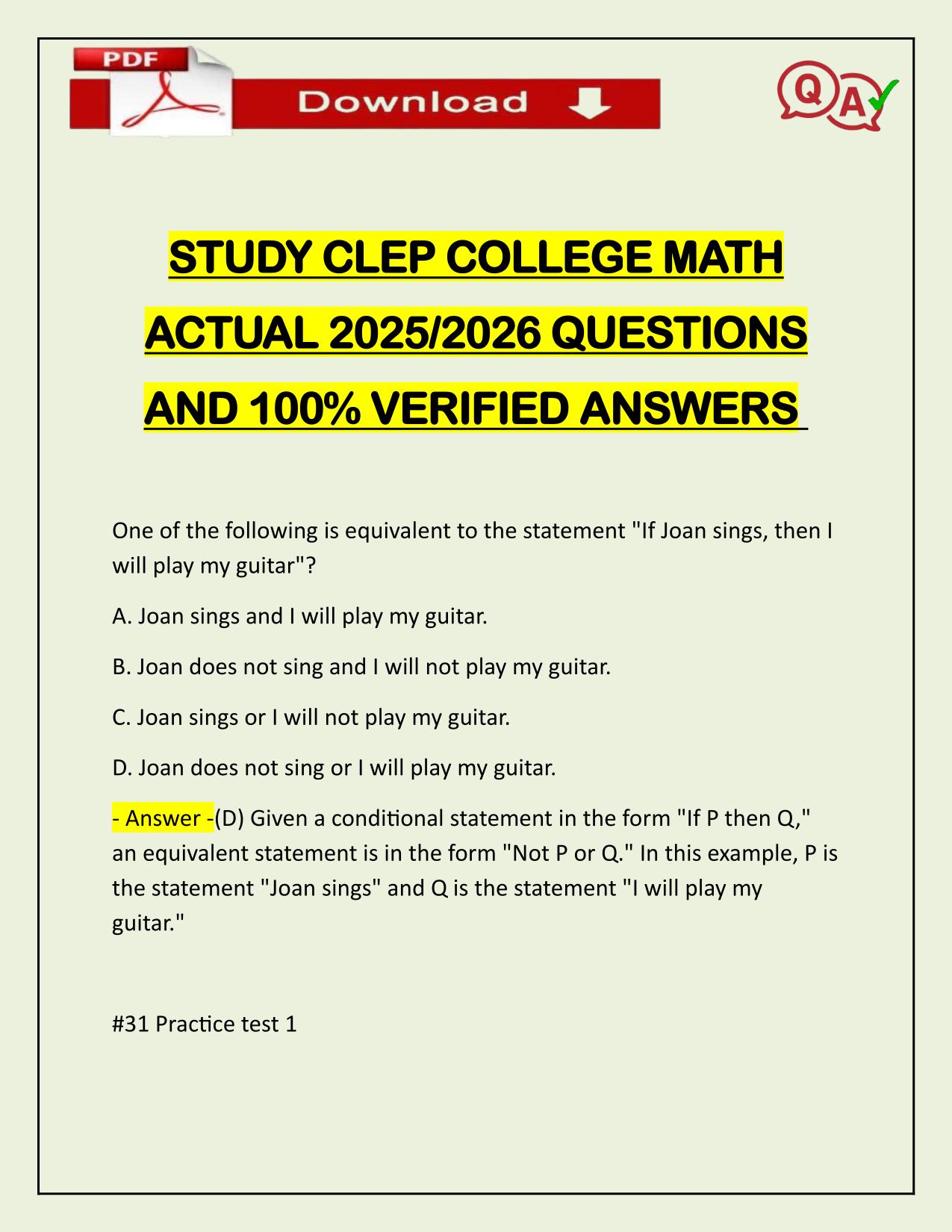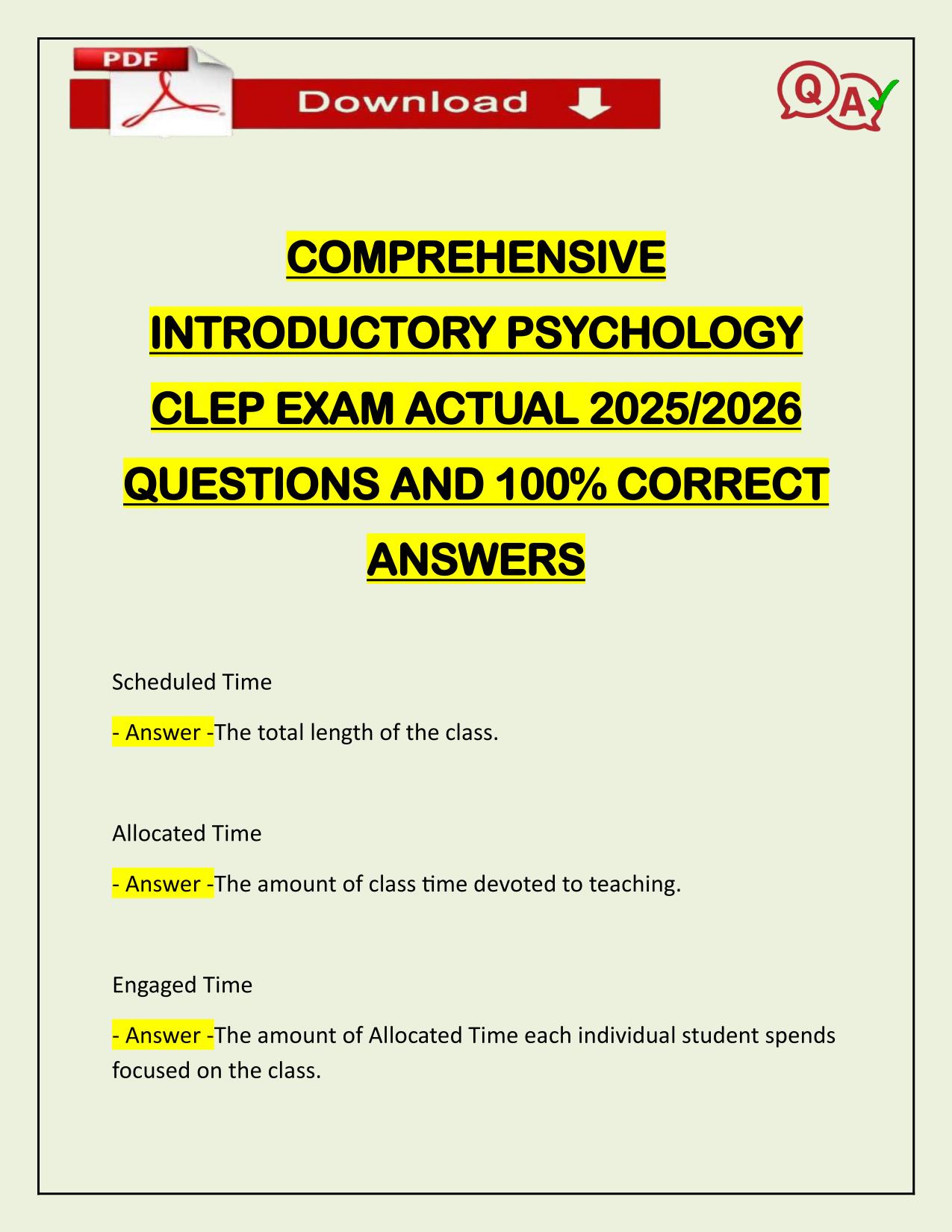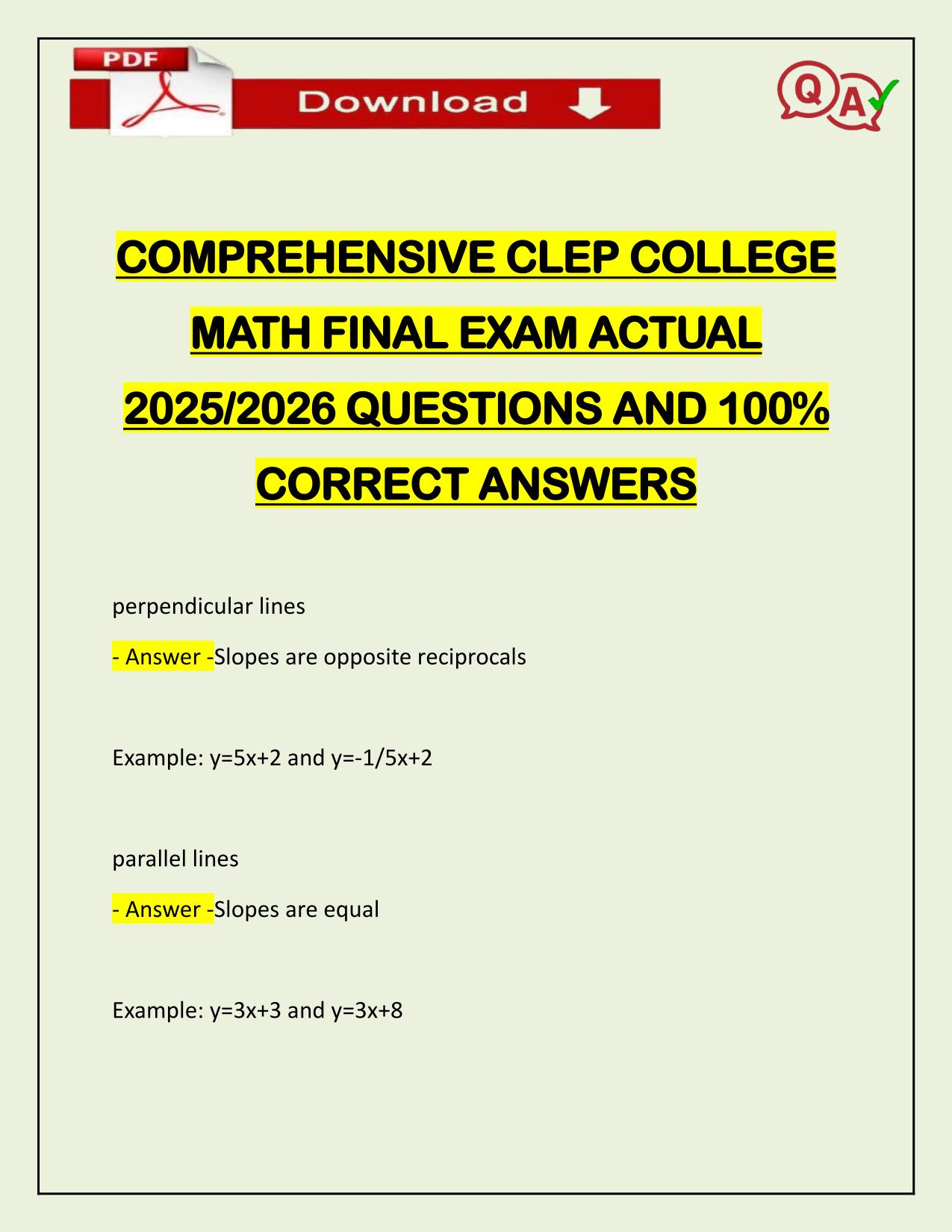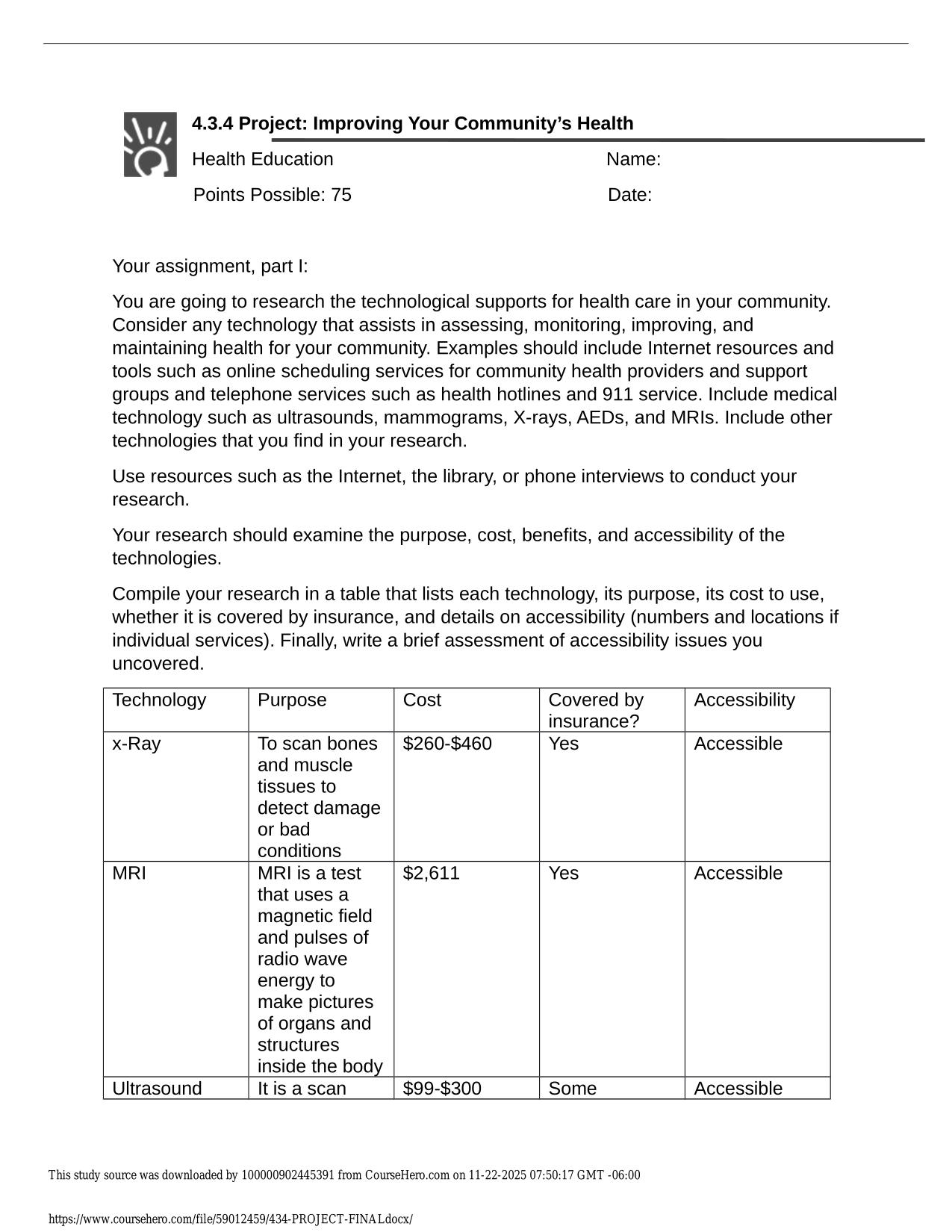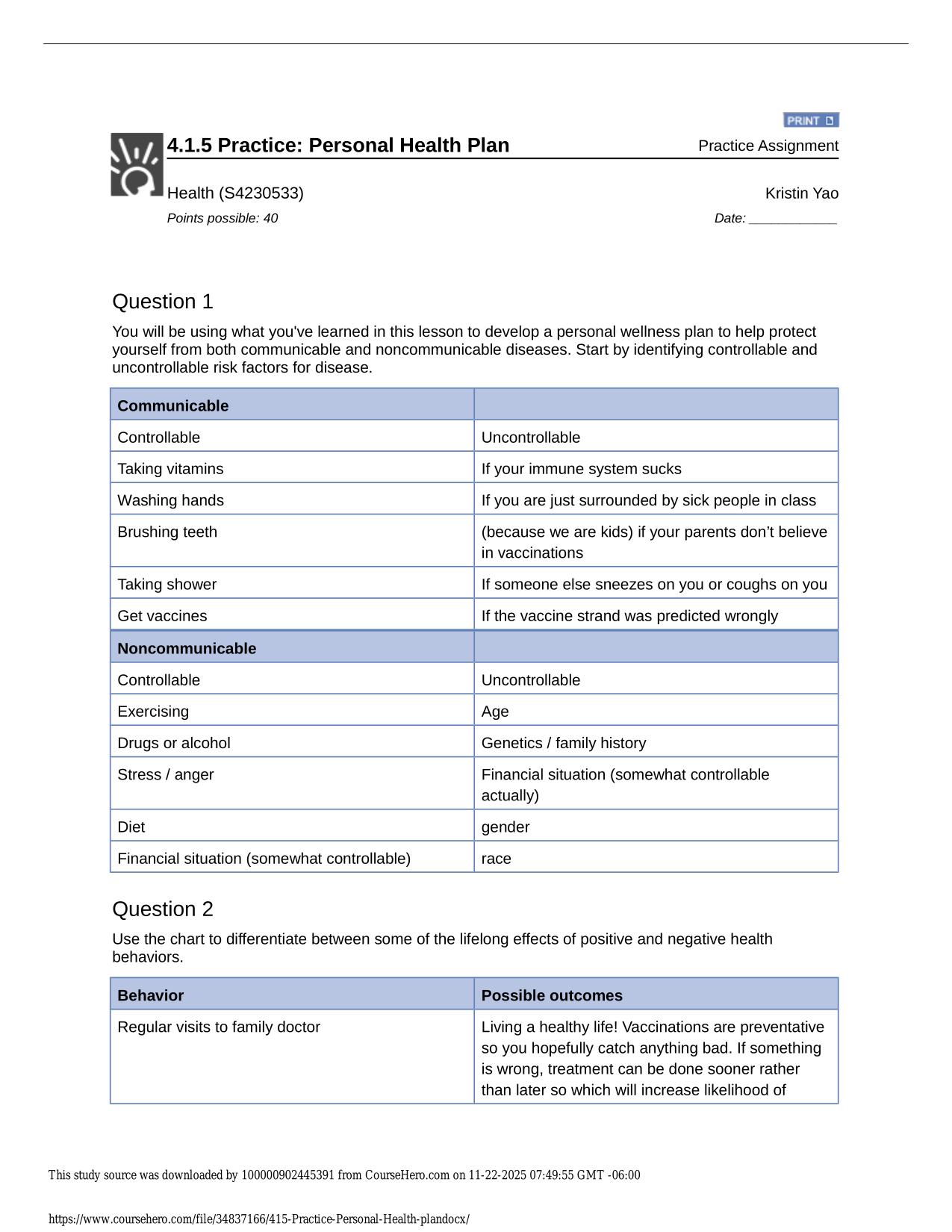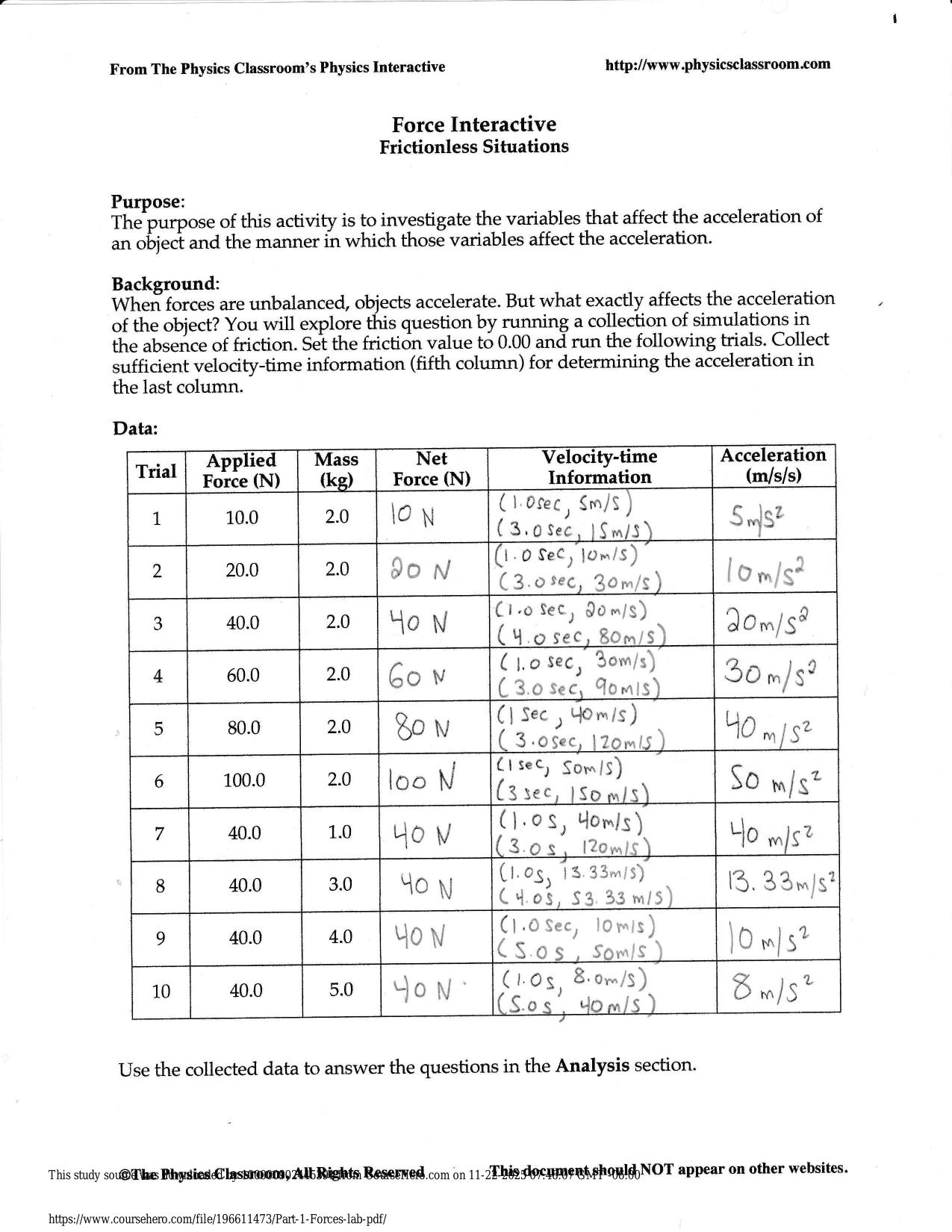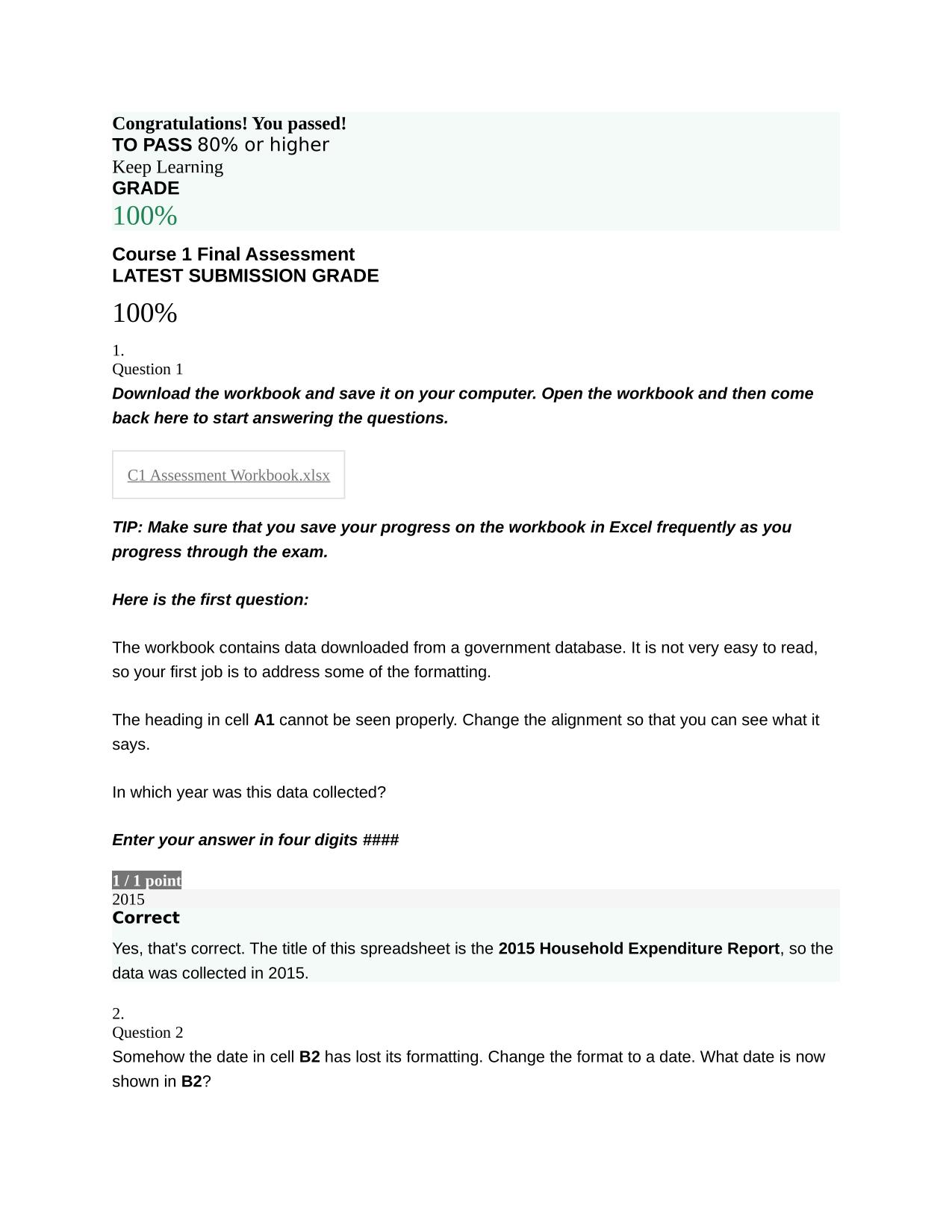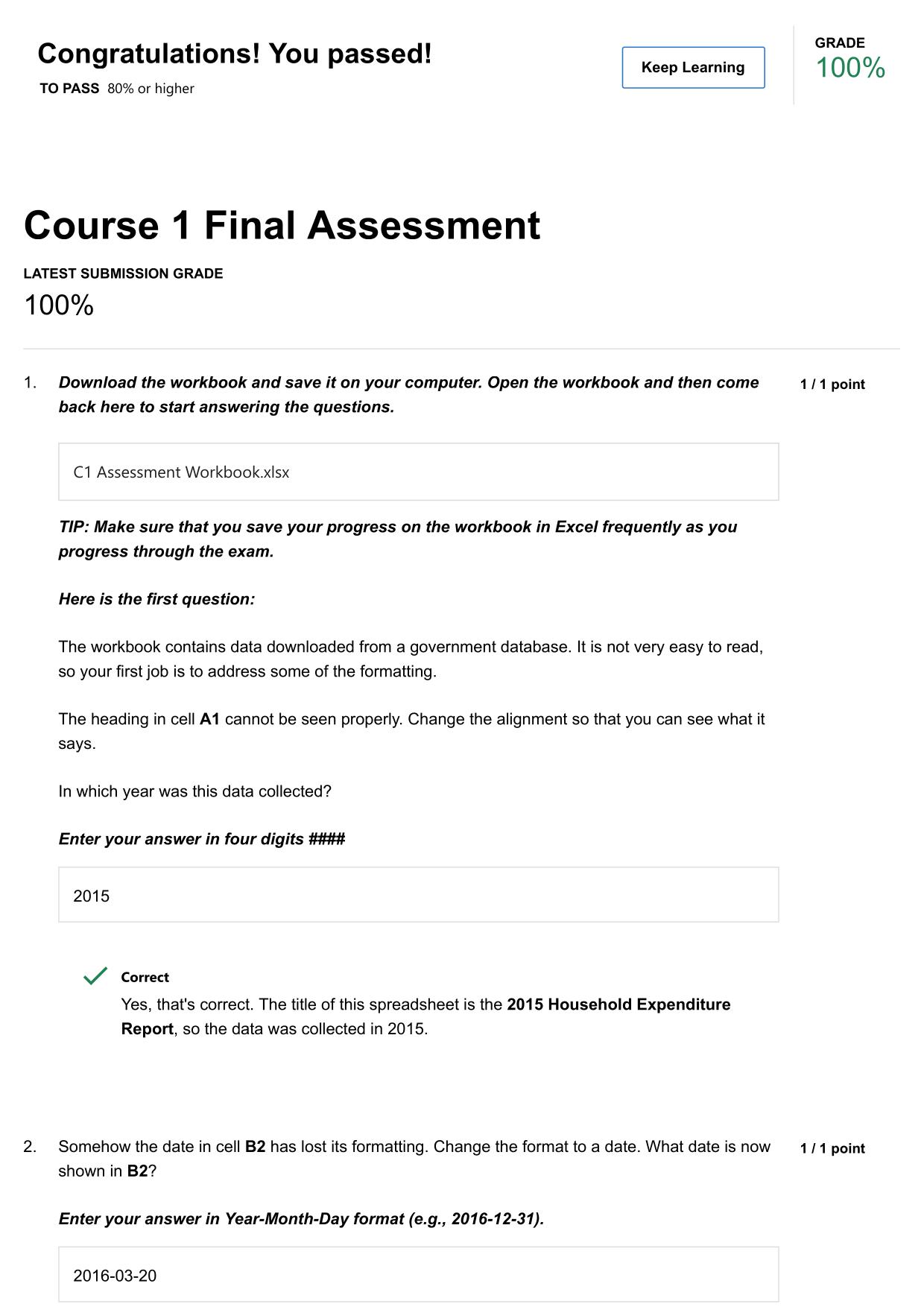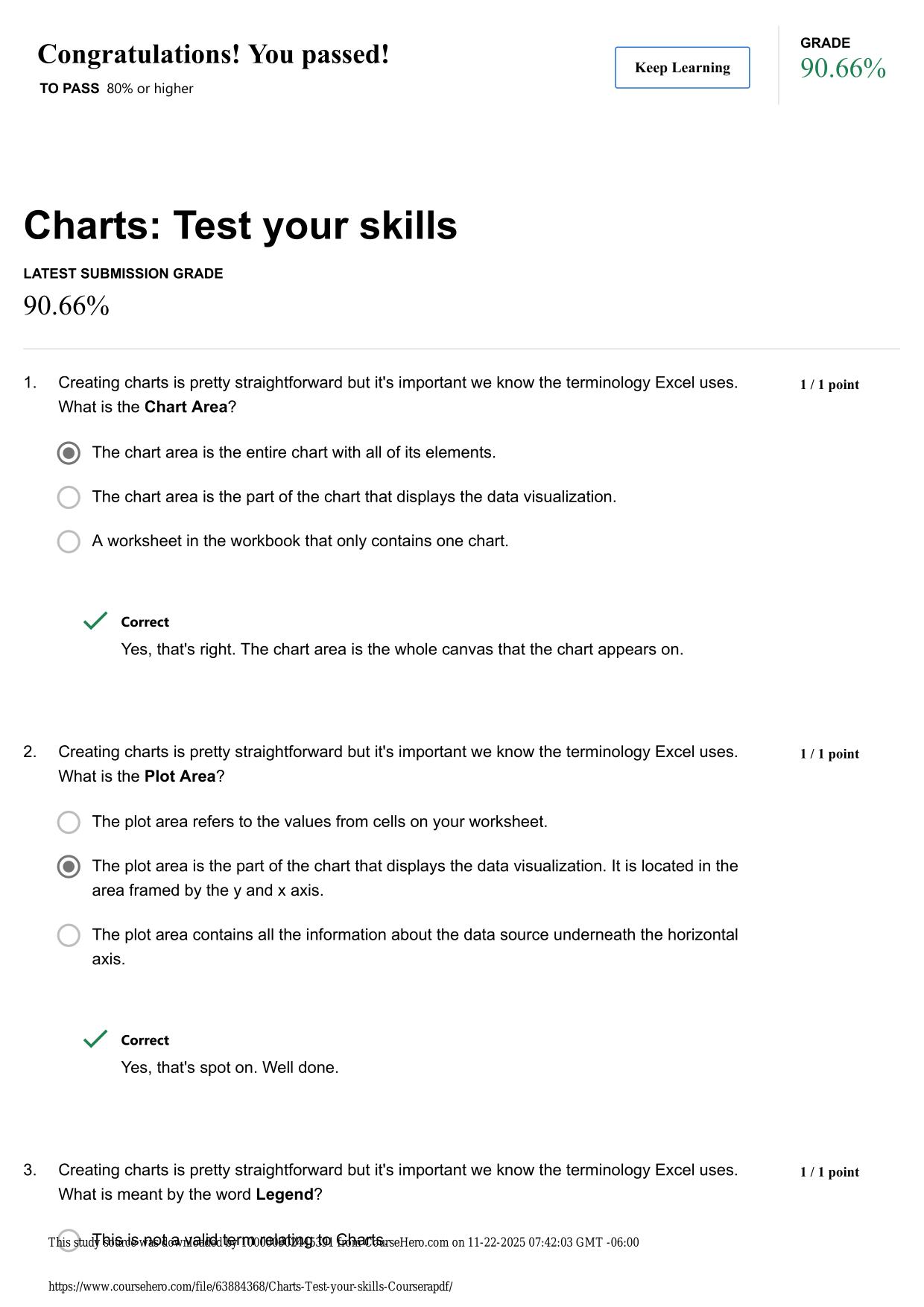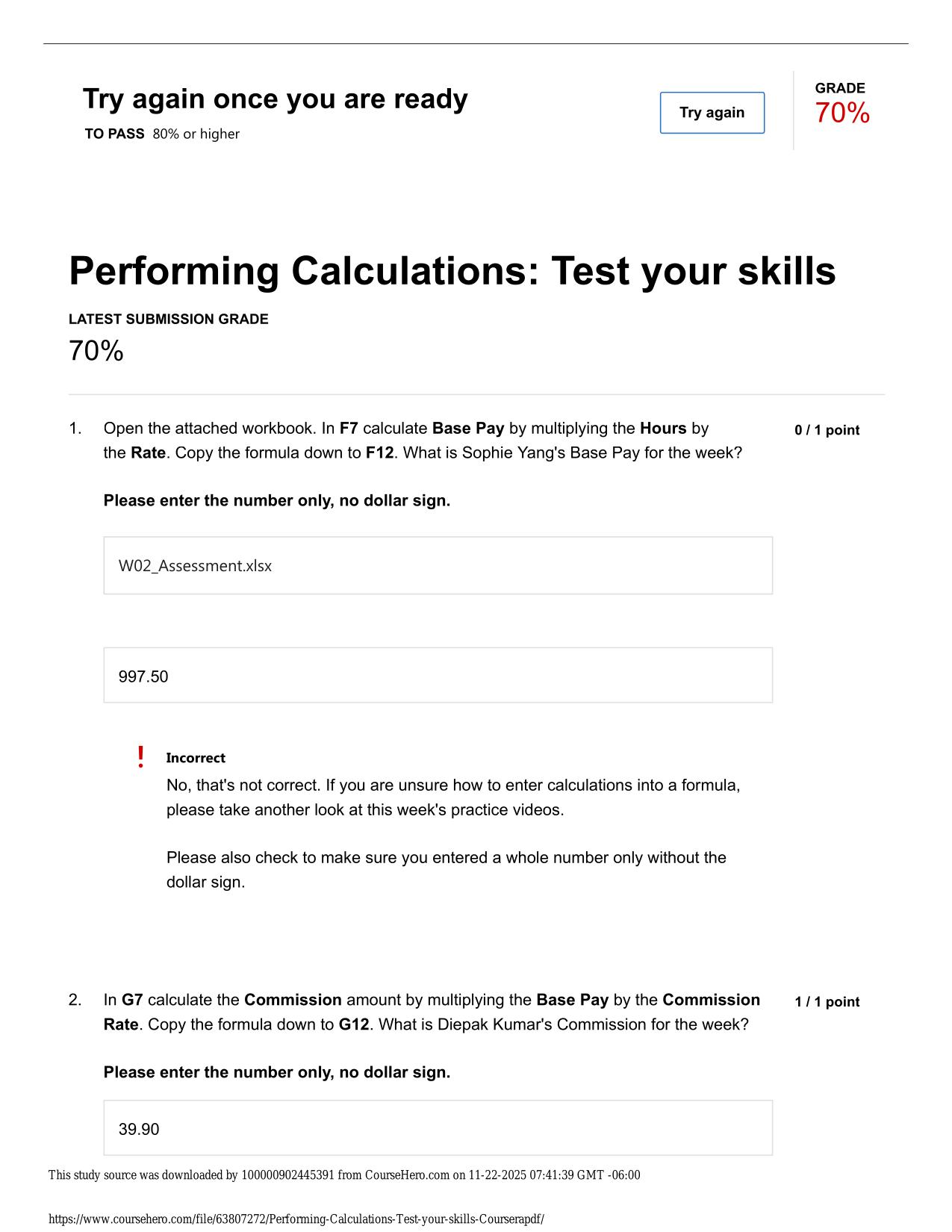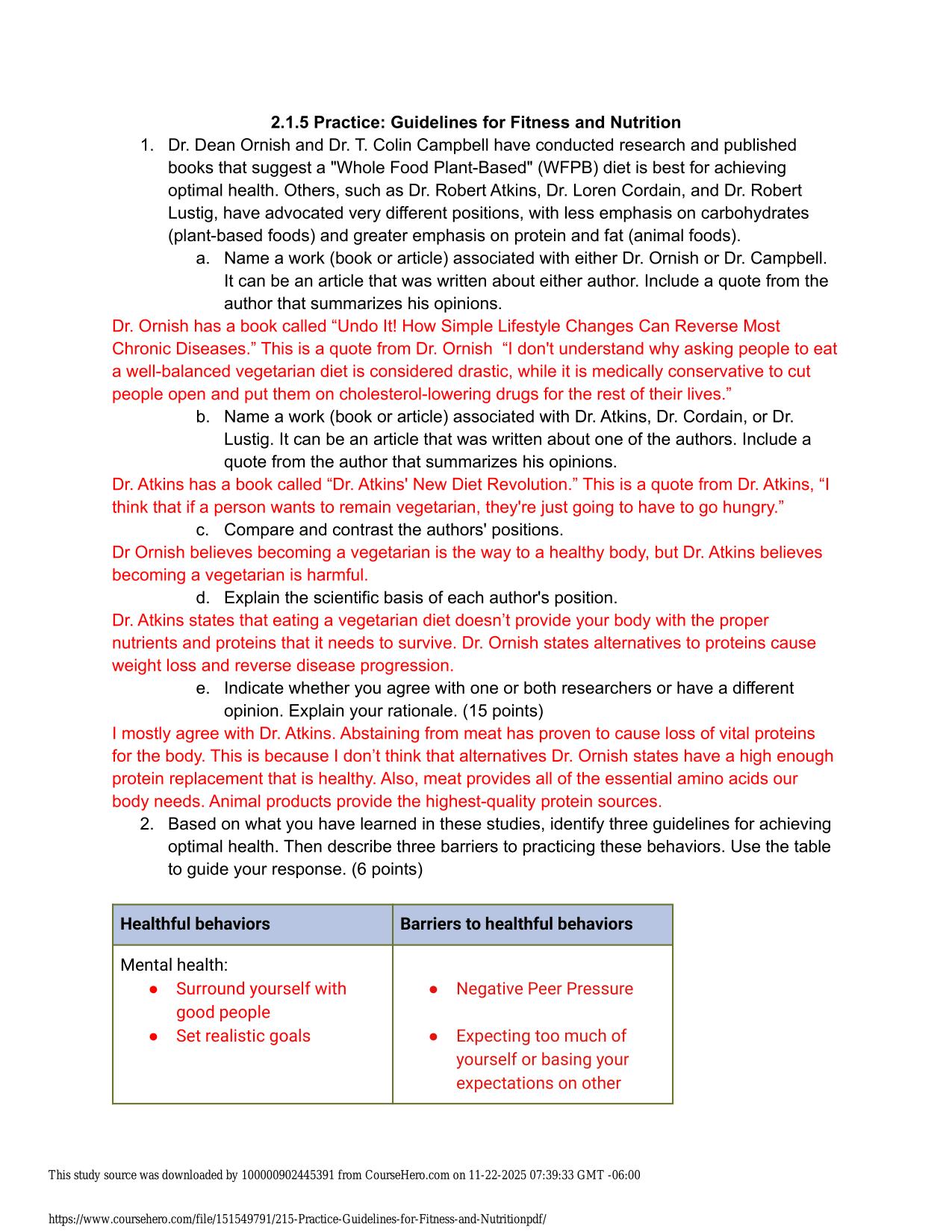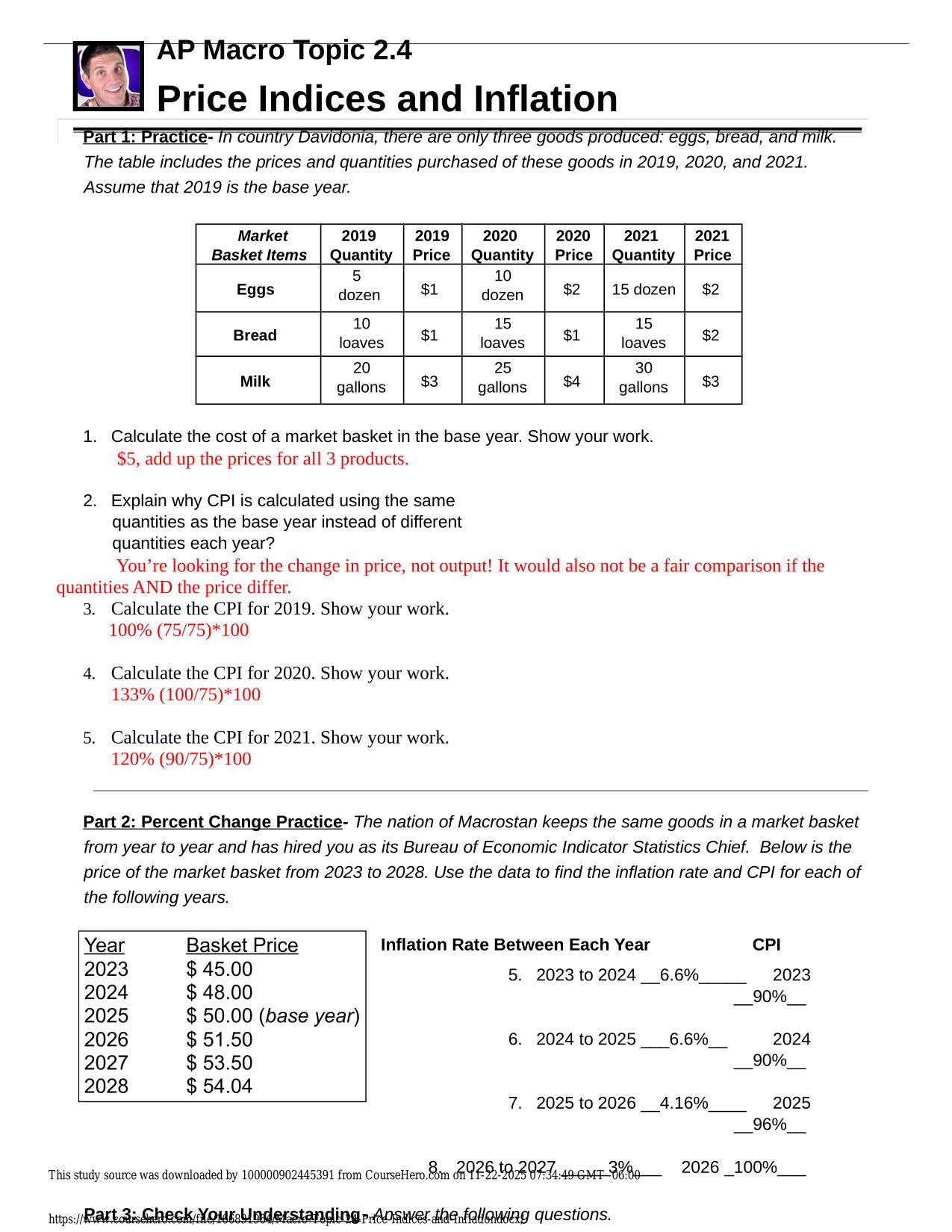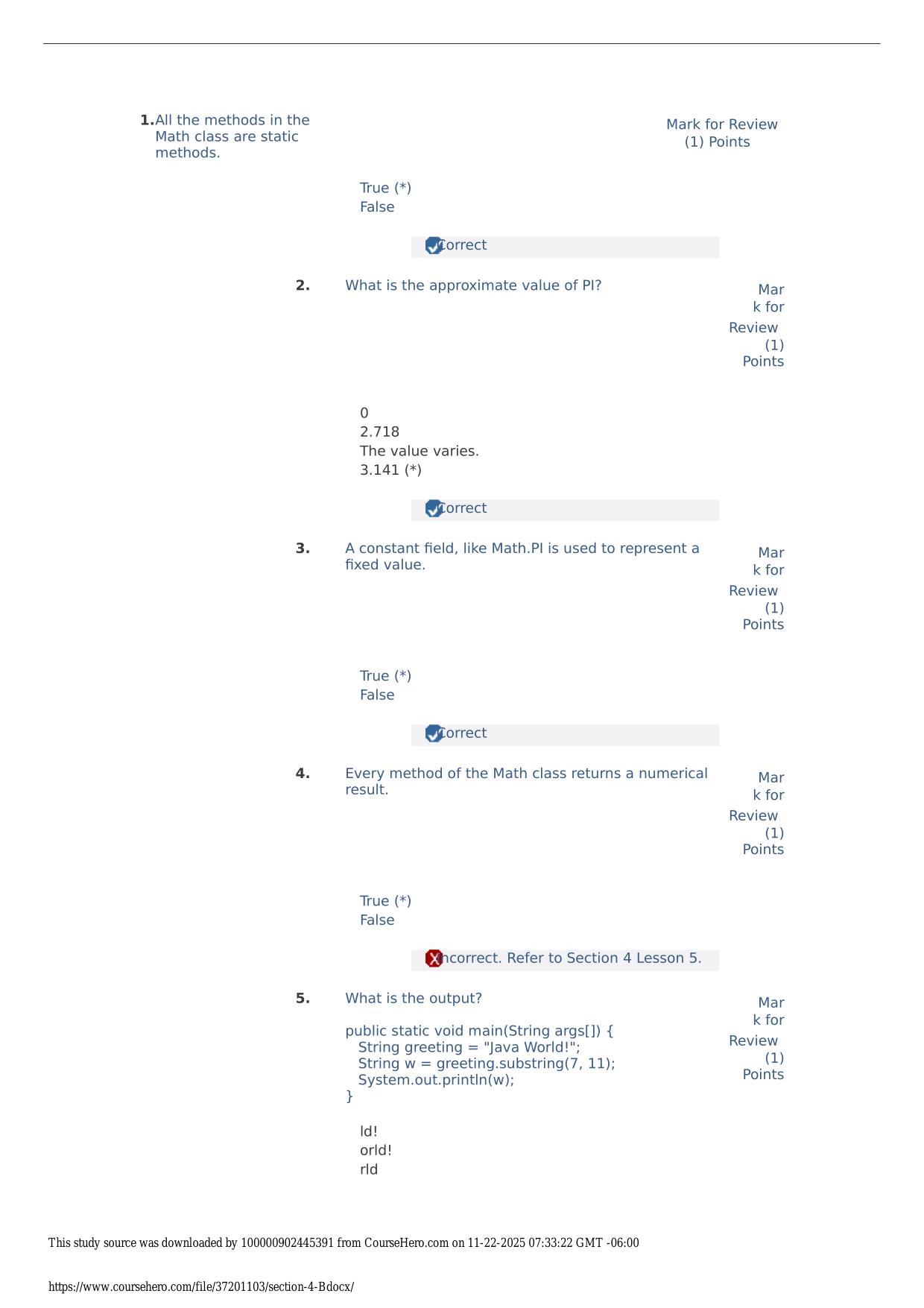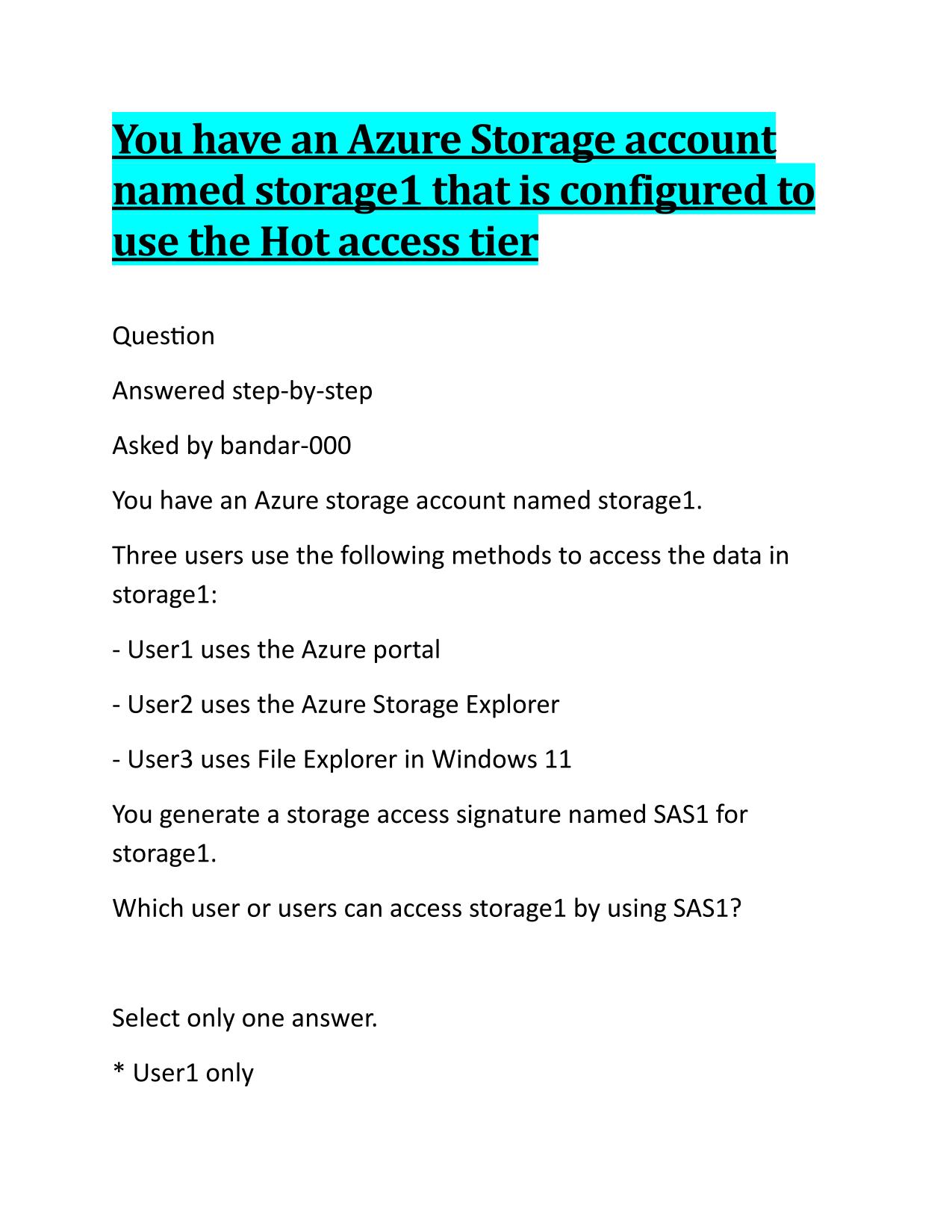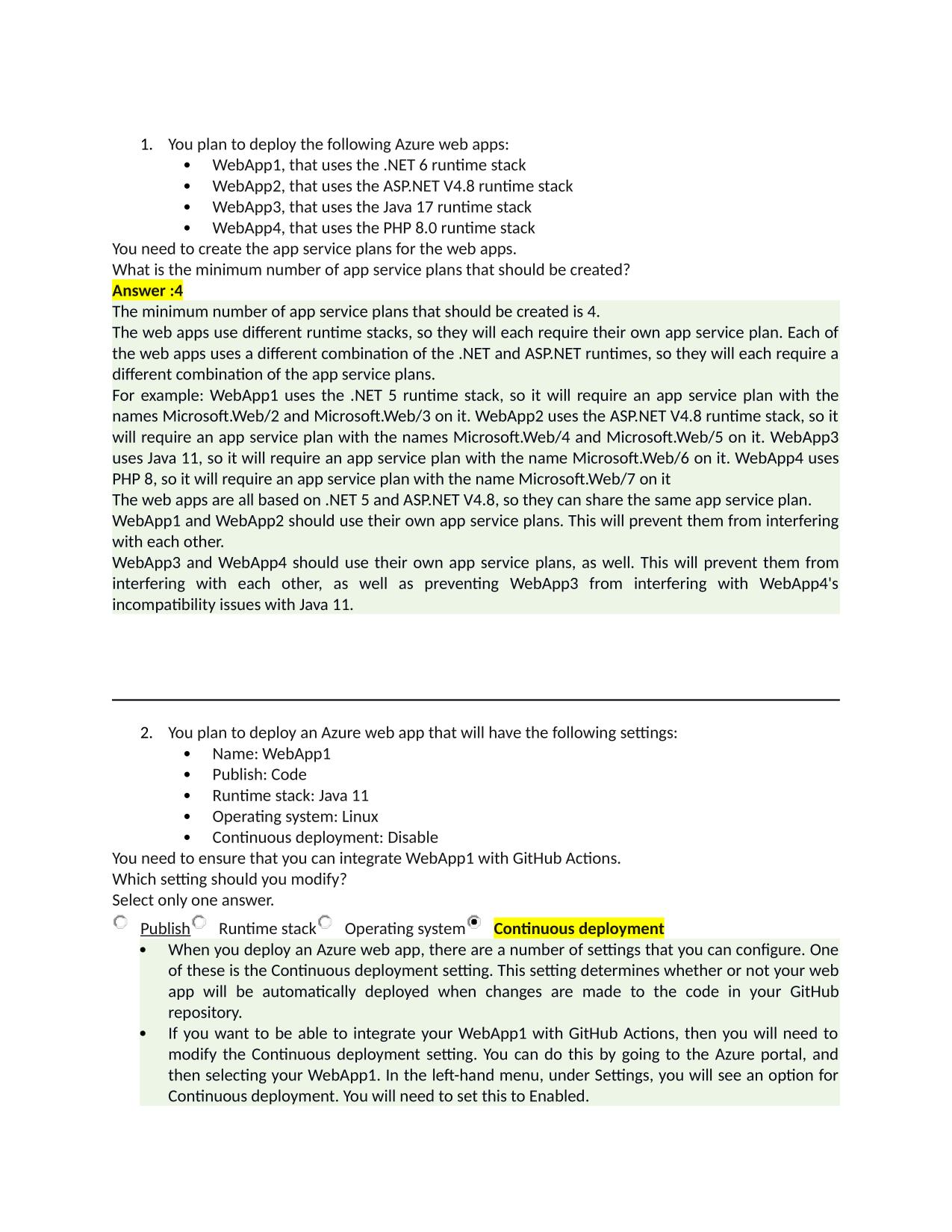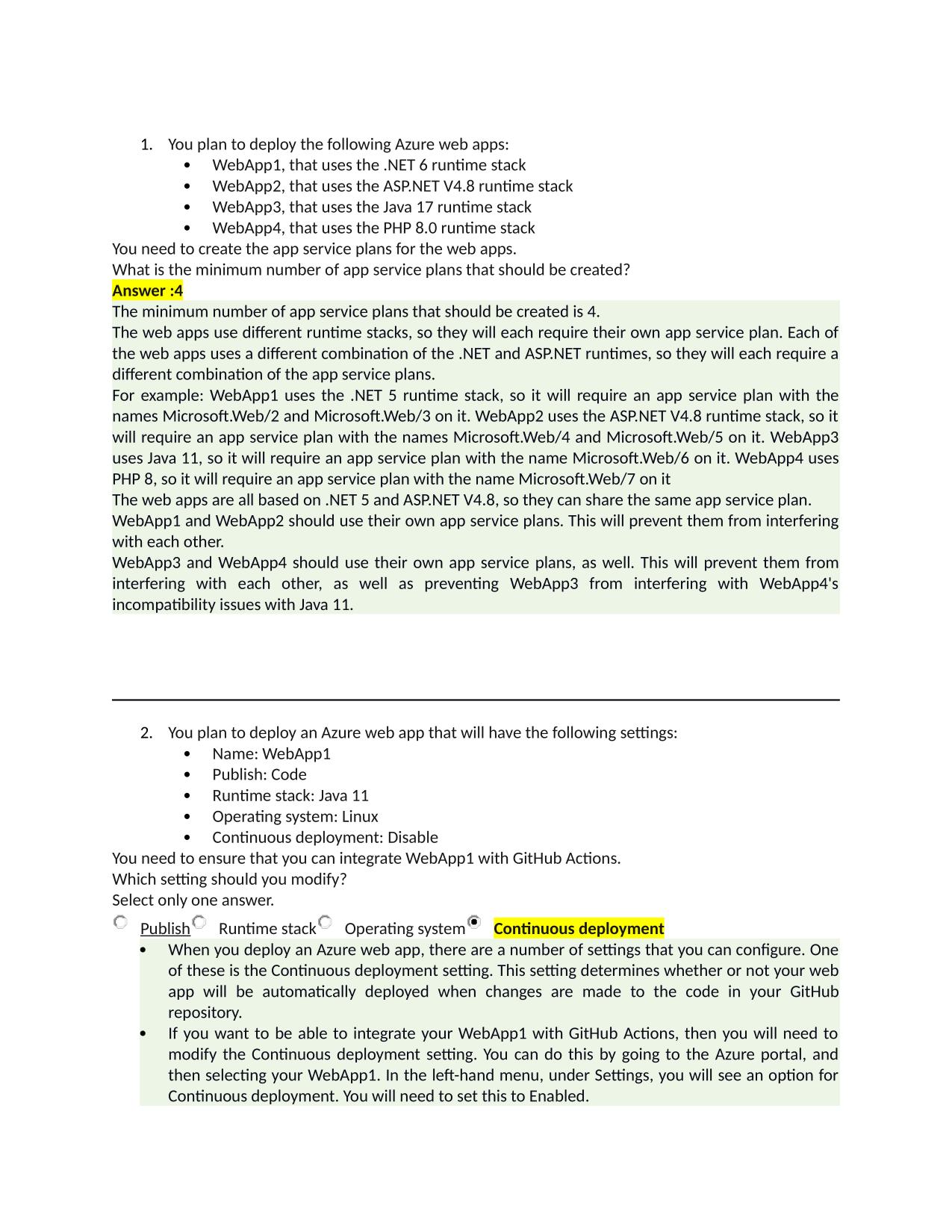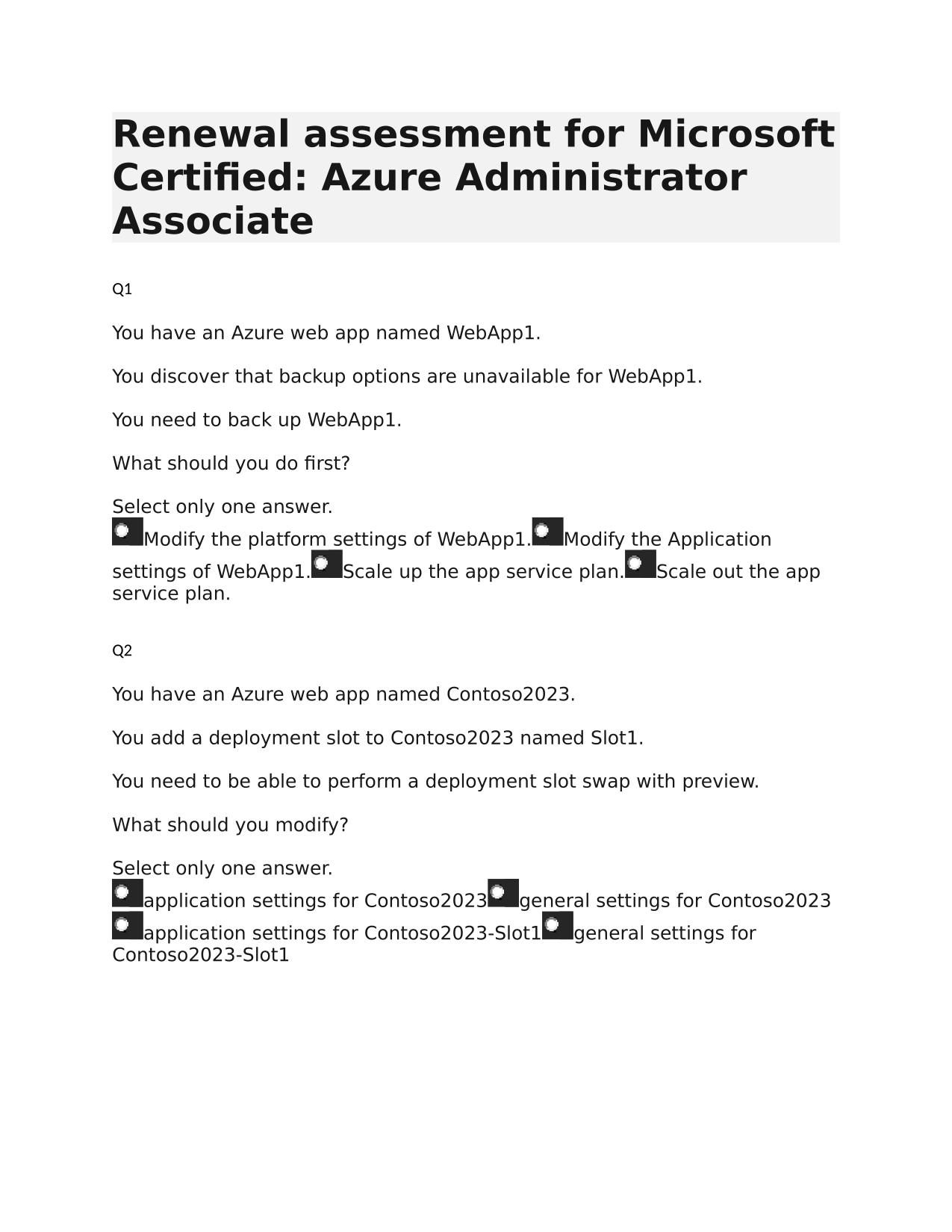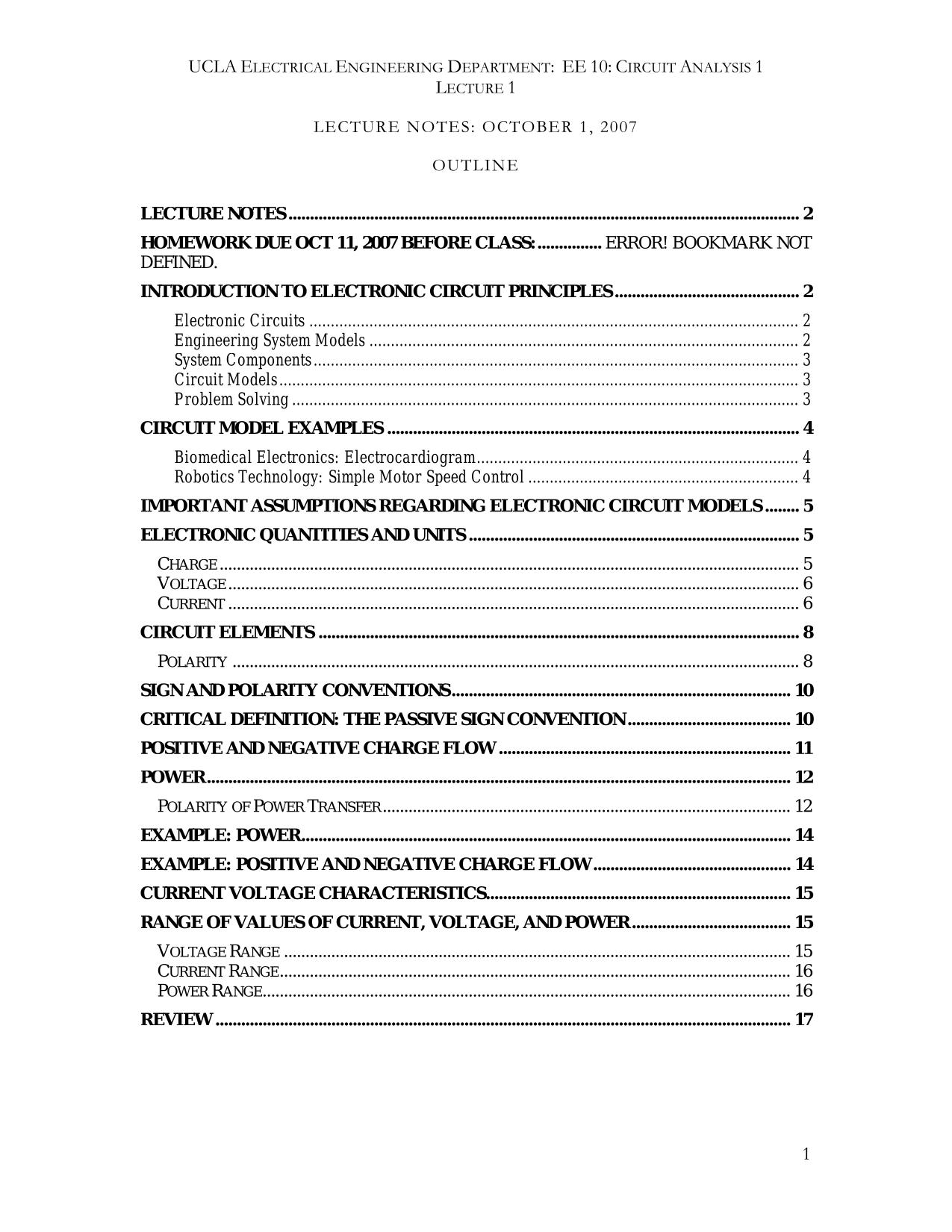PEER RECOVERY COACH EXAM ACTUAL 2025/2026
Course:
PEER RECOVERY COACH
Institution:
PEER RECOVERY COACH
PEER RECOVERY COACH EXAM ACTUAL 2025/2026 QUESTIONS AND 100% CORRECT ANSWERS What is Recovery? - Answer -1 - Recovery is a process of change through which individuals improve their health and wellness, live a self-directed life and strive to reach th...
After purchase, you get:
✅ Instant PDF Download
✅ Verified answer explanations
✅ Refund if not Satisfied
✅ Prepared for 2025/2026 test cycle
Overview
Exam-style cues prompt learners to analyze questions the same way they would during actual PEER RECOVERY COACH ACTUAL / assessments. You're practicing the exact thinking processes you'll need when facing the real test. This alignment between practice and performance helps build authentic exam readiness. Students often find this approach makes the actual exam feel familiar rather than foreign when they finally take it. PEER RECOVERY COACH EXAM ACTUAL 2025/2026 provides carefully crafted questions that reinforce both conceptual understanding and test-taking strategy. Each item serves dual purposes - building knowledge while developing exam skills. This effective approach means you're always working on multiple aspects of your preparation simultaneously. The integrated design makes every study session maximally productive and valuable.
Who Is This For?
Created for exam takers seeking maximum exposure to typical Exam (elaborations) questions, rationales, and scenarios. People often use it to test their readiness before the actual exam. The all-inclusive coverage ensures thorough preparation.
Related Keywords
Detailed Study Description
Frequently Asked Questions
Document Information
| Uploaded on: | October 27, 2025 |
| Last updated: | November 17, 2025 |
| Number of pages: | 27 |
| Written in: | 2025/2026 |
| Type: | Exam (elaborations) |
| Contains: | Questions & Answers |
| Tags: | PEER RECOVERY COACH EXAM ACTUAL 2025/2026 QUESTIONS AND 100% CORRECT ANSWERS What is Recovery? - Answer -1 - Recovery is a process of change through which individuals improve their health and wellness, live a self-directed life and strive to reach their full potential. 2- Recovery is what people experience themselves as they become empowered to manage their mental illness and/or substance use disorder in a manner that allows them to achieve a meaningful life and a positive sense of belongin |
Seller Information

AdelineJean
User Reviews (0)
Exam (Elaborations)
$9.50
Add to Cart
100% satisfaction guarantee
Refund Upon dissatisfaction
Immediately available after purchase
Available in Both online and PDF
$9.50
| 0 sold
Discover More resources
Inside The Document
PEER RECOVERY COACH EXAM ACTUAL 2025/2026 QUESTIONS AND 100% CORRECT ANSWERS What is Recovery? - Answer -1 - Recovery is a process of change through which individuals improve their health and wellness, live a self-directed life and strive to reach their full potential. 2- Recovery is what people experience themselves as they become empowered to manage their mental illness and/or substance use disorder in a manner that allows them to achieve a meaningful life and a positive sense of belonging in their community 4 Dimensions of Recovery - Answer -1. Health: Managing one's disease(s) as well as living in a physically and emotionally healthy way 2. Home: A stable and safe place to live 3. Purpose: Meaningful daily activities, such as a job, school, volunteerism, family caretaking, or creative endeavors, and the independence, income and resources to participate in society 4. Community: Relationships and social networks that provide support, friendship, love, and hope Guiding Principles of Recovery - Answer -1. Emerges from Hope 2. Person-driven 3. Many pathways 4. Holistic 5. Supported by Peers and Allies 6. Supported Through Relationship and Social Networks 7. Culturally-Based and Influenced 8. Based on Respect 9. Supported by Addressing Trauma 10. Involves Individual, Family, and Community Strengths & Responsibilities Need assistance on Online classes, Exams & Assignments? Reach out for instant help!! Full Course Assistance, Plagiarism-free Essay Writing, Research Paper, Dissertation, Discussion Posts, etc…. Confidential & Secure services. Tutors are available for all subjects! Email now at: tutorjean01@gmail.com How A Recovery Orientation Differs from a Treatment Orientation - Answer -(see image) What is Peer Recovery Support? - Answer -peer recovery support is provided by individuals with lived experience in recovery. What is a Peer Recovery Specialist? - Answer -A Peer Recovery Specialist is an individual or family member who has lived experience with mental illness and/or addiction to alcohol and other drugs, and has also completed formal training, who provides one-one strengths-based support to peers in recovery Goals of Peer Recovery Support (6) - Answer -- Instill hope - Promote positive self-identity (reduce stigma*) - Be a role model of strength, survival and growth - Decrease isolation and promote connection with others - Support person-centered recovery - Engage in mutual learning—the peer support relationship is a relationship of equals What is Stigma? - Answer -Stigma is the experience of being deeply discredited due to one's perceived and undesired differentness. It is a cluster of negative attitudes or beliefs held by the general public about people with substance use disorders or mental illness. 4 Main Types of Support Offered by Peer Recovery Specialists - Answer -1. Emotional Support: Demonstrate empathy and caring, foster self-confidence 2. Informational Support: Provide health and wellness information as well as information about community services and supports available 3. Instrumental Support (tangible support): Provide concrete assistance in accomplishing tasks, such as help to obtain child care, employment or access to community health and social services. 4. Affiliational Support (support in building relationships): Promote social connections and engagement in community Need assistance on Online classes, Exams & Assignments? Reach out for instant help!! Full Course Assistance, Plagiarism-free Essay Writing, Research Paper, Dissertation, Discussion Posts, etc…. Confidential & Secure services. Tutors are available for all subjects! Email now at: tutorjean01@gmail.com
CourseHero & Studypool Unlocks
Get Unlocked CourseHero and Studypool documents files instantly to your email, simply by pasting your link and clicking "Unlock Now". Learn more on how to unlock here.
